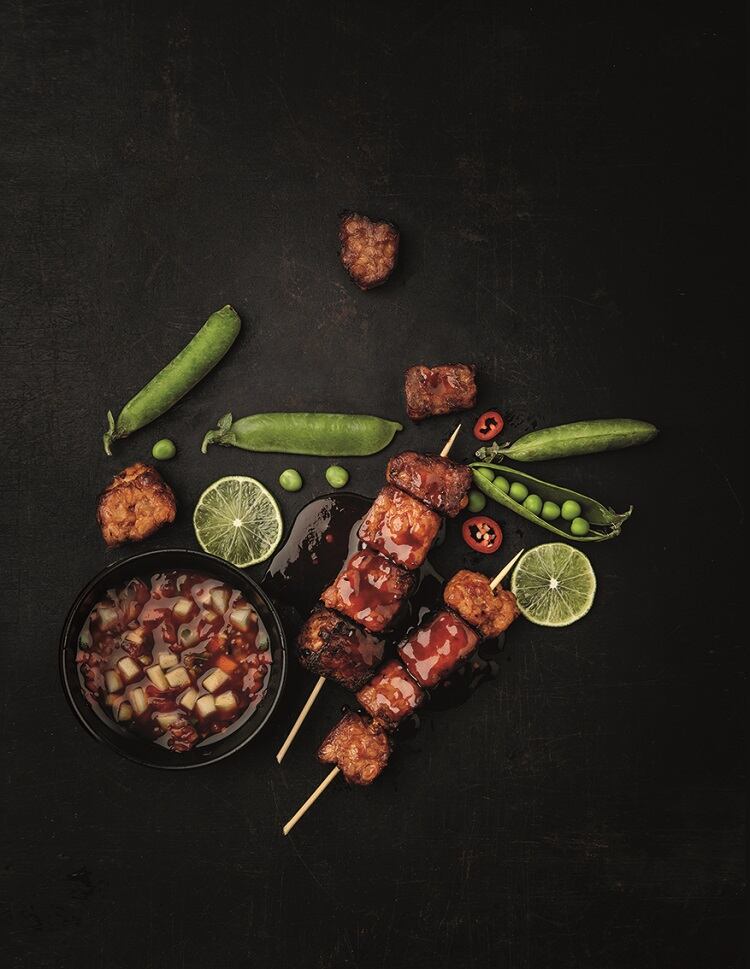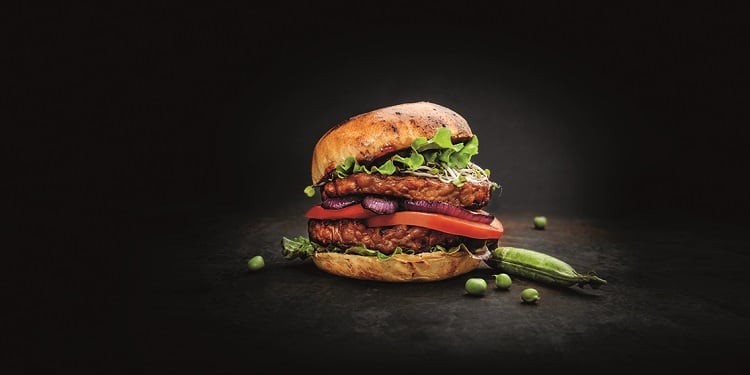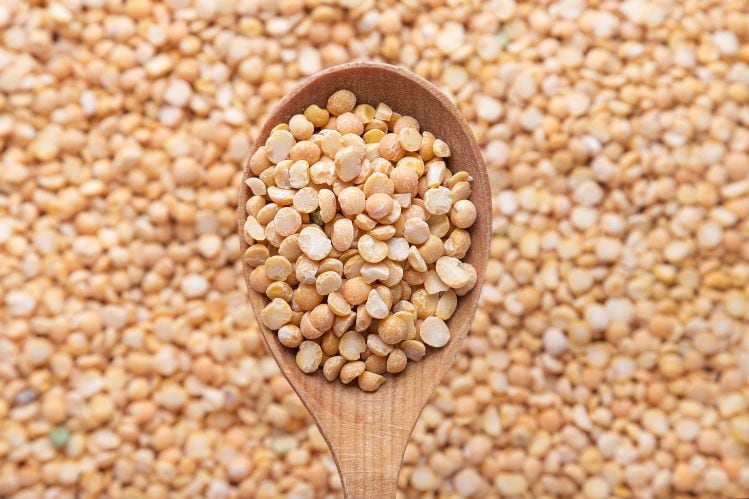Swedish Temptations launched its sprouted and fermented split pea product, Bärta, in June last year. The start-up now sells a plain version - sold in burger and skewer formats – as well as a smoked flavoured alternative to restaurant wholesalers and select retail stores.
Made from peas grown in farms around Linköping, between Stockholm and Gothenburg, the product is a low-processed “kind of tempeh”, founder Pia Qvarnström told FoodNavigator.
Tempeh is a traditional, fermented soy product originating from Indonesia, which has a mild, sour flavour.
Bärta however is sprouted, and "very different in texture and flavour from the original [soybean] version,” Qvarnström explained.
“We do as little as possible with it. We just let the natural processes ‘have its way’ with the split pea, and we use the whole pea – it’s not made from isolate, it’s just peas, with the hull and everything,” she continued.
According to Qvarnström, this is what gives Bärta its distinct texture. “[Being] made from whole pea, you can still feel the whole thing in there. The texture is very different, it doesn’t have the bitter taste you can get from isolate protein, and there is more fibre and carbohydrates in Bärta compared to products made from protein isolates.”
The texture has some similarities to meat: “When you bit into it, it doesn’t just fall apart – there is some resistance there – and it’s juicy.”

Tapping into the fermented trend
The idea for Bärta came from another business venture, Qvarnström told this publication: “I had a food truck a few years ago, making and selling organic, vegan, fermented food in Stockholm. It started with fermented vegetables and nuts, and a split pea tempeh that I made myself.”
Her food truck, Mögel (Swedish for mould), was instrumental in building consumer interest in fermented foods, she said – a trend that has attracted significant attention across Europe for its natural process and health-related benefits.
However, Bärta, which is fermented using Rhizopus mould sourced from Belgium, should not be confused with fermented foods high in probiotics, Qvarnström noted. “While it is fermented, making it easier to digest…you don’t get the benefits from eating good bacteria. However, you do get the benefits of eating prebiotics that give food to the good bacteria – which is good for the stomach.”
Interest in fermented products is growing across Europe, with an increasing number of cultured drink options, such as kombucha and lassi, available to the public. According to Qvarnstrom, however, the market is far from saturated.
“There has been a very small portfolio of products so far. There is room for many different kinds of products for different taste buds.”
A market of its own?
Bärta is not a traditional tempeh and its production method separates it from the 'beyond meat' category, she highlighted: "It's very different from 'beyond meats', we are not trying to imitate meat." As a result, it is difficult to categorise Bärta into a distinct market sector. Indeed, Qvarnström told us she is not aware of true ‘competitors’ within the split pea tempeh market.
Other split pea tempeh products do not compare on taste, she told us. “They haven’t taken the time to really get to know the process, and then when it doesn’t taste good, it’s not good for us. If people try that product and they don’t think it’s good, then they won’t want to try us.
“I don’t see competitors, I just see people tainting our product.”
So just who is Bärta’s target audience? Consumers that want to eat more tempeh, but want more possibilities on their plate, Qvarnström said, citing health and environmental concerns as contributing factors.
“From a climate perspective, the split pea is even lower in climate impact than the soybean.
“We hope to be part of [a movement towards] helping people around the world transition to a healthier and more sustainable diet.”
Expansion plans
The growing number of food start-ups in Europe, which are by their nature capable of being more agile and consumer-driven than major food companies, can present a threat to large corporations. As smaller firms increase their market share, promising start-ups are often presented with opportunities to expand via external investment.
Swedish Temptations, which hopes to introduce Bärta to the international market, said it would be open to the opportunity. “We’re talking to several different investors and will issue new shares shortly.”



